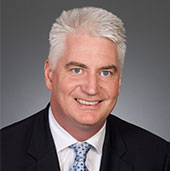Great Hill Equity Partners IV, LP v. SIG Growth Equity Fund I, LLLP
(Del. Ch. Nov. 26, 2014) (denies defendants motion to dismiss fraud claims, analyzes scope of recovery for certain fraud claims in connection with a private company acquisition)
In a 2013 opinion in this case, the Court of Chancery held that the right to assert the privilege over attorney-client communications and ownership of such communications passes to the acquirer in acquisitions structured as mergers under Delaware law (read our summary of related matters).
Aided with additional information afforded by the prior ruling, plaintiff Great Hill Equity Partners (acquirer in the 2011 acquisition of Plimus, Inc.) amended its suit against former stockholders, officers and directors of Plimus, alleging that defendants intentionally withheld information regarding the deteriorating relationship of the target company’s most significant commercial partners. Great Hill specifically made claims of fraudulent inducement, fraud, aiding and abetting, civil conspiracy, and, notably, with respect to former stockholders who were not alleged to have engaged in fraud, indemnification and unjust enrichment. As is often customary, the merger agreement in this deal provided that the escrow amount would serve as the sole recovery for indemnification, subject to fraud. Great Hill argued that if its fraud claims were successful, that it should also be able to seek indemnity from all former stockholders on a joint and several basis. In response, defendants took the position that the operative provision only served to permit tort recovery for fraud (beyond the terms of the contract), rather than indemnification from faultless stockholders. Similarly, the parties also took opposing positions regarding the ability to seek recovery for unjust enrichment against stockholders that did not participate in fraud. The Court declined to address either of these two claims in detail given the early stage of litigation in this case, noting that although ultimate recovery may only be for either a direct fraud or secondary participation in the fraud, there was no purpose to limiting plaintiffs’ theory of recovery at this stage in the litigation.
For practitioners, the opinion offers a useful review of the application of current law to specific factual allegations of fraud (and a reminder of the leverage afforded by control of the attorney client privilege after a deal).





You must be logged in to post a comment.